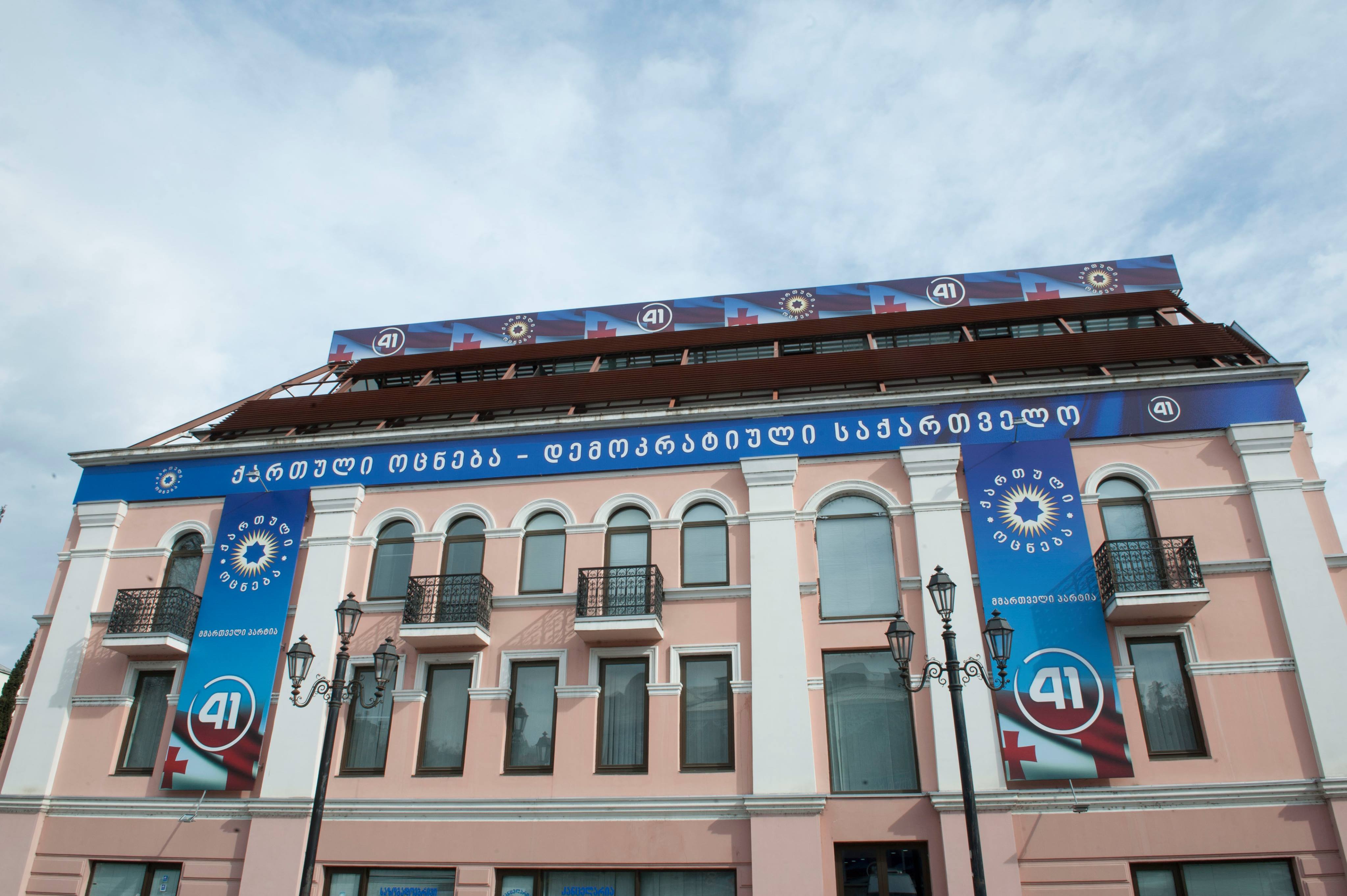
Opposition, CSOs Slam Georgian Dream Over War Anniversary Remarks
The ruling party leaders upheld their previous tradition on the 11th anniversary of the August war and laid responsibility for the consequences of the Russian-Georgian war on the previous government and ex-President Mikheil Saakashvili.
These assessments by the ruling team triggered strong criticism by the opposition and the civil society organizations. Civil.ge offers a compilation of assessments by the Georgian Dream party, the opposition and the CSOs.
Statements by the ruling party
Vice speaker Gia Voskli, who also leads the parliamentary majority, was the first to post on his Facebook page about the August war on August 7, laying the entire responsibility for the consequences on then government and ex-President Mikheil Saakashvili.
“It was just Saakashvili’s regime that deliberately thwarted the peace plan approved by partner countries. He sacrificed our country and servicemen for defeat,” Volski writes, adding that upon Russia’s instructions, Saakashvili bombed already evacuated areas, then recorded “this operation” and spread the footage throughout the world.
Irakli Garibashvili, the ruling party’s political secretary, also posted on his Facebook page, saying that the United National Movement and Mikheil Saakashvili were co-authors of Russia’s occupation of Georgia. He also added that just their “treacherous and harmful policy made Russia’s occupation possible.”
“Until this hostile and treacherous force is not cut out of Georgia’s political body, we will not achieve any success on the path of de-occupation, because internal enemy should be defeated first to achieve victory on external front line,” Garibashvili writes on his Facebook page.
MP Mamuka Mdinaradze, leader of the Georgian Dream faction, also raised the issue of the United National Movement’s responsibility, saying that Saakashvili’s government yielded to provocation that led to the loss of territories and death of people.
“Instead of continuing its struggle on international arena upon showing the very first signs of Russia’s military aggression, by decision of then government, Georgia got involved in military confrontation with Russia,” he wrote on his Facebook page on August 7.
Opposition assessments
The ruling party’s accusations prompted critical assessments from the parliamentary and non-parliamentary opposition. In his Facebook post on August 7, ex-President Saakashvili said in 2008, he managed to save Georgia, but failed to do the same in 2012 and Putin brought Bidzina Ivanishvili to power. “Ivanishvili’s presence in the government in Georgia is a continuation of Putin’s war against Georgian people,” he said.
Grigol Vashadze, one of the leaders of the United National Movement, slammed the Georgian Dream for its statements, saying that due to their remarks, entire responsibility of the war and its consequences may be laid on the Georgian state.
The European Georgia party released a special statement in response to the ruling party’s remarks.
MP Giga Bokeria, one of the leaders of European Georgia, explained that the government used this date “not for paying tribute [to the victims] and sending a common message to our common enemy, but for unleashing an immoral campaign of defamation against political opponents.”
“Political opponents inside the country are their key targets and they are ready to support the enemy’s narrative introduced by Putin’s propaganda, as if Georgia played the key role in the developments that took place 11 years ago,” he said, adding that “it is a shameful and gravest reality for Georgia that we have such government.”
Members of the non-parliamentary opposition also criticized the ruling party for its August war-related remarks.
Tamar Kordzaia of the Republican Party said that “instead of caring for the country’s reintegration and citizens’ reunification, it is looking for the enemy inside the country,” she said, adding that “despite our political belongings, we have a common enemy and this enemy is Russia, as well as its President Putin.”
Shalva Natelashvili of the Labor Party called Gia Volski, leader of the parliamentary majority, “Russia’s foreign intelligence officer,” saying that “he writes what he is ordered to write from Moscow.” “I can assess this [narrative] as supporting and reinforcing Kremlin’s position [in Georgia],” he added.
CSO assessments
A group of 11 civil society organizations, including Open Society Georgia Foundation, Atlantic Council of Georgia and International Society for Fair Elections and Democracy, released a joint statement on August 8, stressing that while the Russian Federation continues occupation of Georgian territories, government officials put narrow-party interests above the state interests and continue accusing the previous government of launching the war.
“By this, they are sharing the position of Vladimir Putin, President of the occupying country, and are supporting the spread of Russian disinformation,” the group said.
Referring to the EU-funded report on August War, the group claims that before official launch of the military operation, Russian army units had already entered the Tskhinvali region and “they had no peacekeeping mandate.”
The group also referred to Putin’s statement, according to which “the war plan against Georgia was developed by Russian general staff in 2006.”
The CSOs condemned the Georgian government’s statements and called on the ruling party “to refrain from expressing the position, which poses a threat to Georgian statehood, sovereignty, territorial integrity and serves Russia’s interests.”
This post is also available in: ქართული Русский